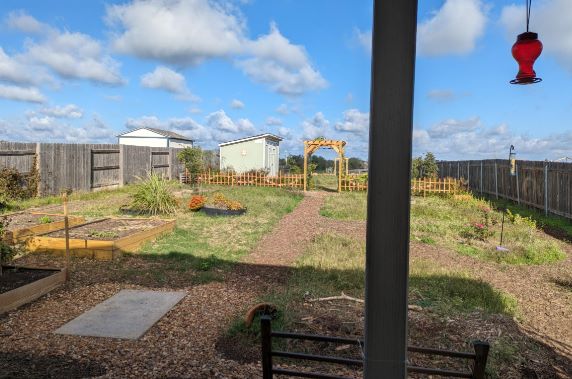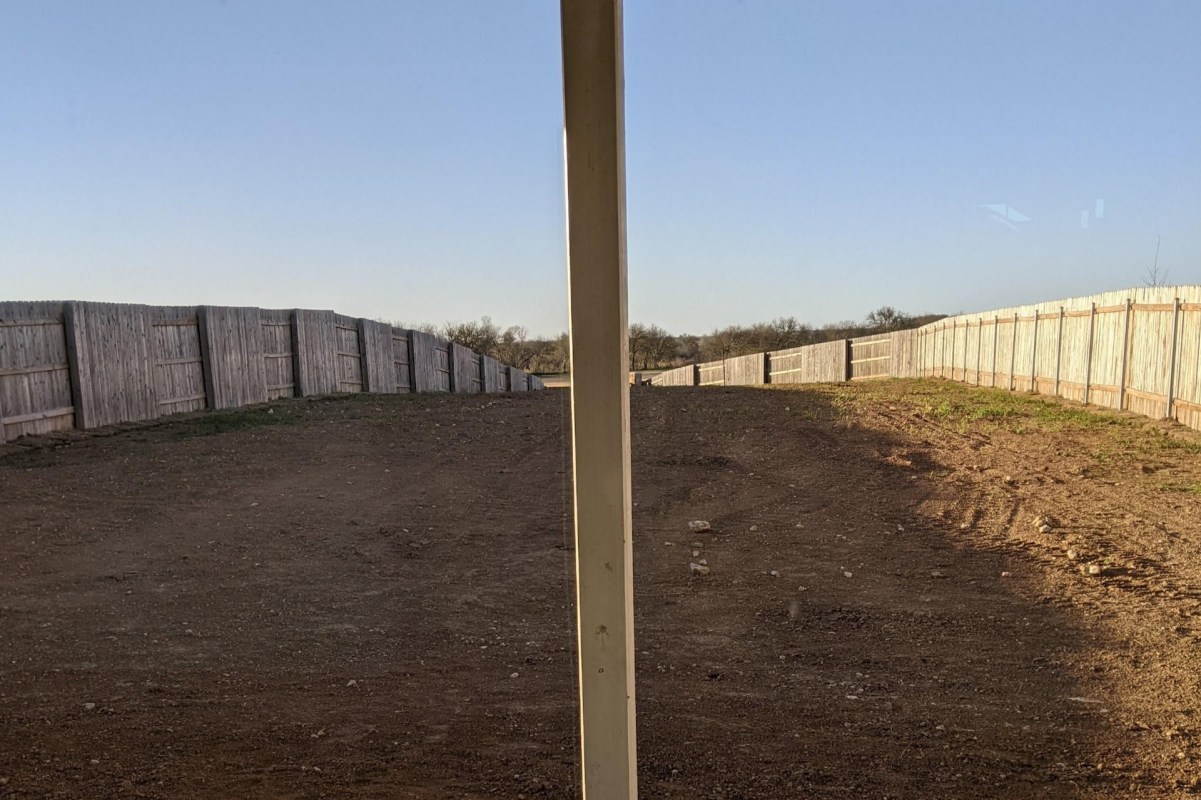We have all seen some amazing lawn transformations, but this might be one of the most inspiring yet.
This homeowner took to Reddit to share their yard transformation two years in the making in the r/f***lawns subreddit. The post shows a before photo of a large empty dirt patch, followed by the after photo — featuring a burgeoning garden with some lawn and several garden beds.

The poster wrote: "The cost to sod this quarter acre strip was staggering, so we opted to go all natural. This year the sorghum and sunflowers came up en masse and made a ton of green mulch. Clover and mushrooms are everywhere along the mulch pathways now!"
It's so inspiring to see people take these eco-friendly paths and rewild their yards. Rewilding is a process by which gardeners choose to utilize native plants rather than more exotic plants. Rewilding can help save money and time on watering, fertilizer, pesticides, and weed control. Planting native and local plants is not only good for your wallet but it's also good for your local ecosystem.
Encouraging a diverse array of native flora not only bolsters local wildlife but also provides essential habitats for crucial pollinators. These pollinators are vital players in the health of our ecosystems and the security of our food supply.
According to the Audubon Society, "The modern obsession with highly manicured 'perfect' lawns alone has created a green, monoculture carpet across the country that covers over 40 million acres." The move to focus on native plants is in response to this staggering loss of biodiversity and exotic plants are a contributing factor in this loss, with the site noting "... native oak trees support over 500 species of caterpillars whereas ginkgos, a commonly planted landscape tree from Asia, host only 5 species of caterpillars."
Even a partial lawn replacement with alternatives like clover or buffalo grass can bring significant ecological and economic benefits to homeowners.
If you are interested in using more native plants in your garden, there are some great guides to point you in the right direction. The Audubon Society has a database you can search by zip code, and Homegrown National Park showcases ecoregions and aggregates several ways to find natives.
The comment section of this post is full of supportive people. One commenter wrote, "Looks great, and you don't have to mow it."
Another person said, "I'd definitely take a walk there!"
Join our free newsletter for easy tips to save more, waste less, and help yourself while helping the planet.









